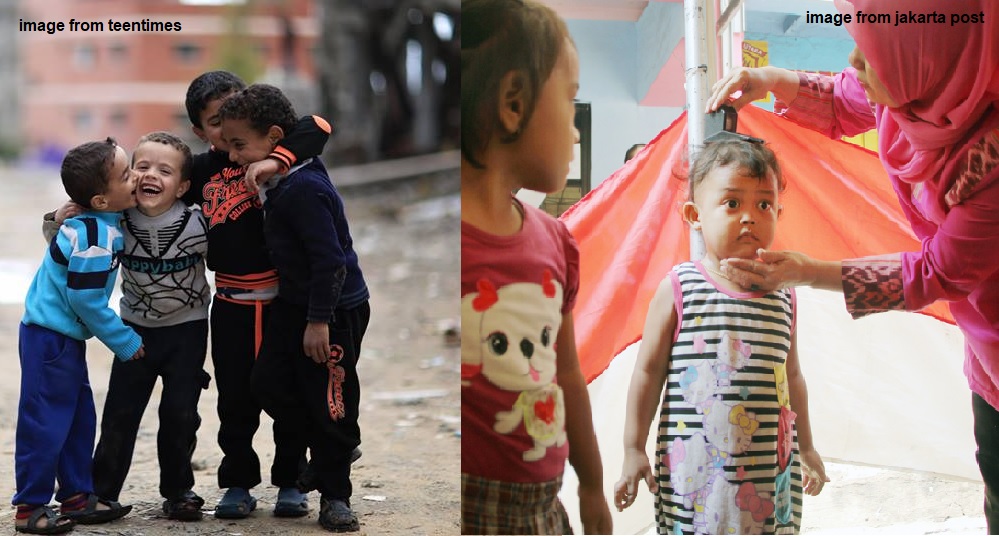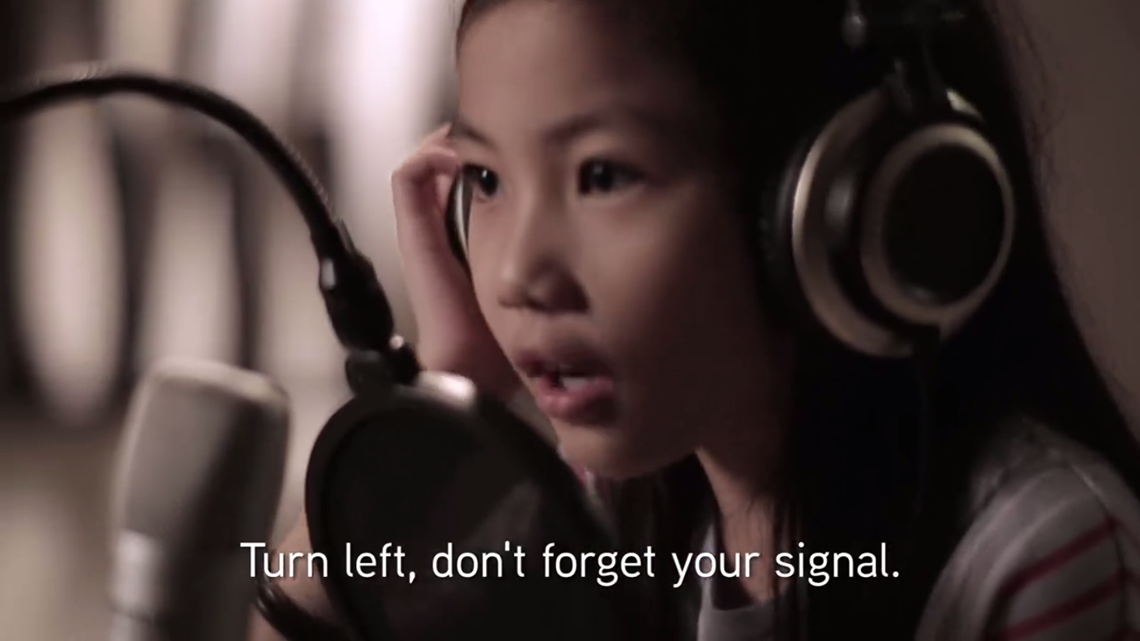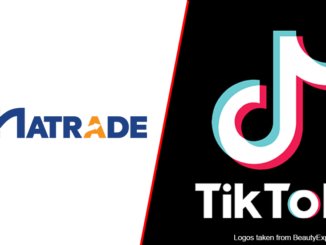12-year-old kid pays parents a salary? 3 Malaysian kids who became CEOs
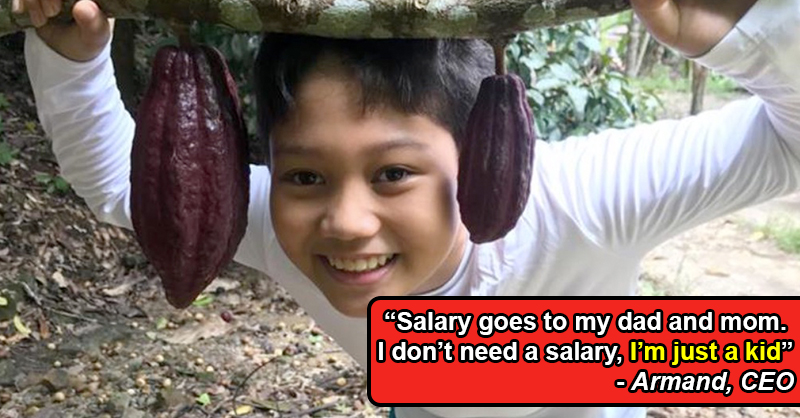
- 1.5KShares
- Facebook1.4K
- Twitter13
- LinkedIn17
- Email25
- WhatsApp73
If you casually met Sarah Najihah, Iszuddin, or Armand on the street, you’d probably think they were just regular kids. But at 15, 17, and 12, they’re currently running their own businesses while juggling school in equal measure.
But it’s not just in the name of profit either. All three of them started their ventures with the goal of making a change – Sarah for her friends, Iszuddin for sea turtles, and Armand for independent farmers in Sabah. While their work and ingenuity were the driving forces on that unpaved road to success, one factor that cannot be discounted were their parents who not only provided encouragement and support to start the business; but also with entrepreneurship programmes that helped them grow the business.
So if you’re a parent that’s looking for such a programme, well you’re in luck…

Goodday KidSTART is Malaysia’s largest kid entrepreneur (or kid-preneur) programme launched by our friends at Goodday Milk. We’ll provide more details at the end of this article, but suffice to say, if you have a child between the age of 7 to 14, they can be selected for a mentorship and training bootcamp where a RM50,000 prize fund is waiting to make their business dream a sweet reality.
Speaking of sweet…
At 10, Armand started a chocolate factory in Sabah
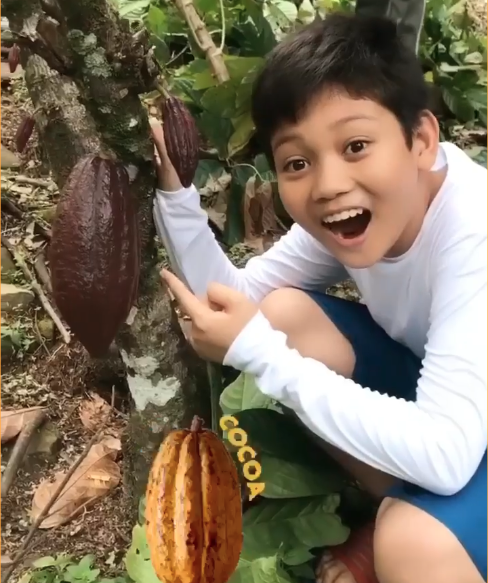
Armand is the founder and CEO of Koko Loko, a cocoa snack and chocolate company based in Sabah that works with local farmers to grow the cocoa beans used in their products.
However, this wasn’t his first business venture.
Armand tells us that he started his first business at the age of 6, selling healthy sausages that he sourced from a family friend instead of asking his mom for pocket money. Unfortunately, he had to give up the business 3 years later, when the family moved to Sabah for Grow the Goose – his mom’s social enterprise that teaches money management to children in rural areas.
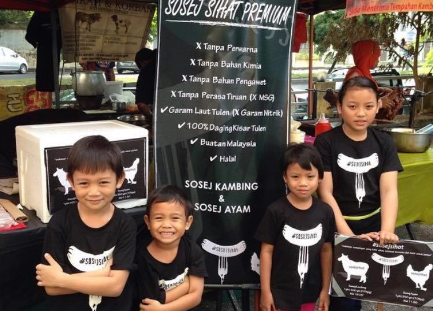
It was while accompanying his mom, Nina, to one of the villages in Tambatoun that he came across a neglected cocoa tree among the other fruit trees grown there:
“I saw that the fruit was black. [The villagers] were just provided the seeds by Lembaga Koko so I thought, what can I do about it?
At the time I watched Willy Wonka and the Chocolate Factory like 5 times so, yea, I wanted to be like Willy Wonka and start my own chocolate business and have my own chocolate factory.” – Armand, in interview with CILISOS
The family reached out to cocoa specialists and a chocolate maker for help, teaching the farmers how to properly fertilise and prune the trees, and using their cocoa beans in Koko Loko’s products; which include cocoa nibs, cookies, and a cinnamon pot that comes with a pure cinnamon stick from Keningau.
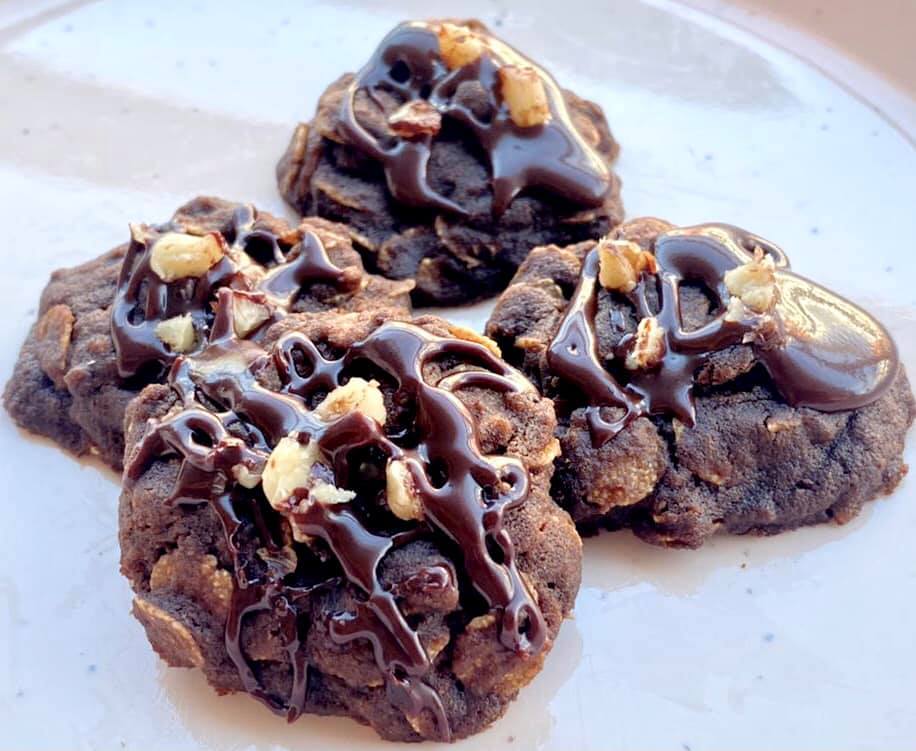
Aside from the business supplementing the income of the local community, 10% – 20% of Koko Loko’s profits go to the preservation of corals and mangroves.
“My mom said if you want to start a business, you need to have a thing you do it for. My ‘thing’ was coral and mangrove.”
At this time, Koko Loko is fully run by the family – with Armand’s dad running the factory in Lok Kawi – though he says they have plans to hire in the near future. With 5 regular customers (like cafes) making purchases each month, Armand says business can be brisk especially when they have promotions like their Iftar Box during Ramadan. The hard part, though, is balancing work and school:
“I have exams, activities, housework, schoolwork… I have to update social media, keep up on orders, and help my dad at the factory. Yea, that’s the hardest part, which is right now.”
And like a true boss, he pays a salary to his parents…. but not himself.
“I don’t see it as ‘I’m the CEO, I need a salary’. I’m just a kid. So the salary goes to my dad and my mom, but I’m saving up money for things lah… like I bought a gaming PC. My mom keeps my money for me.”
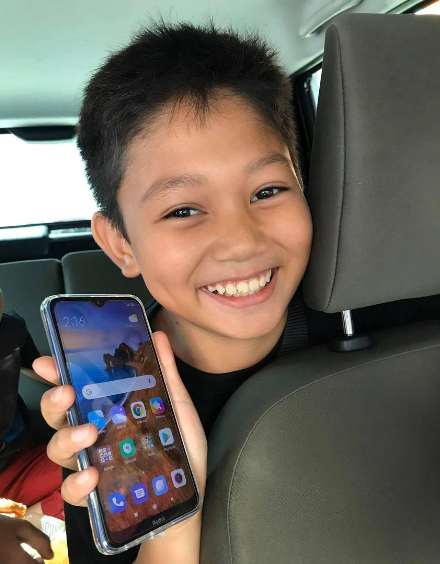
For the time being, Armand is focusing on his upcoming exams but says he plans to take Koko Loko more seriously in the future, with plans to open outlets, diversify into cafes, and introduce a range of premium chocolates…. or in his own words “I want Koko Loko to be as big as Milo!”. And to other budding kid-preneurs, he has the following words of advice:
If you have a chance, just do it. If you have supportive parents then just do it because you can lose nothing. It’s a learning process.”
At 13, Iszuddin started a non-profit group to save turtles… by selling cookies
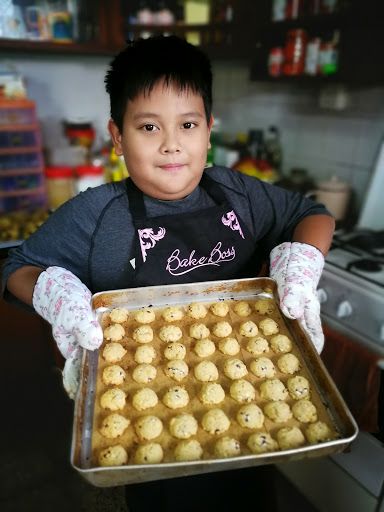
When he was 11, Iszuddin’s science teacher showed his class a video that would deeply affect him – the hunting of endangered leatherback sea turtles.
“Before watching the video I didn’t see animals going through any sort of danger or extinction. It was really an eye-opener for me, and I can still vividly remember being very upset that turtles were being hurt and killed.
Specifically there was one part where a guy with a spear just jumped on the turtle’s back and stabbed it. I didn’t expect it and was really shocked. They killed the sea turtles because they believed it could cure illness and it isn’t even scientifically proven.” – Iszuddin
After a discussion with his mom, Iszuddin decided to make videos about sea turtles and conservation. But when they didn’t create the impact he was expecting, his mom suggested a different approach – raise funds for conservation efforts by selling cookies. Iszuddin spent many a day in the kitchen helping his mom bake cookies and brownies so, in that sense, selling cookies to raise funds was a pretty natural transition.
“The previous year, I had already started selling cookies to my friends [because] I wanted to buy a video game. So when I wanted to raise funds for sea turtles, I started selling them again.”
And in case you were wondering, that game he wanted was WWE 2K17. His favourite wrestler is CM Punk 🙂
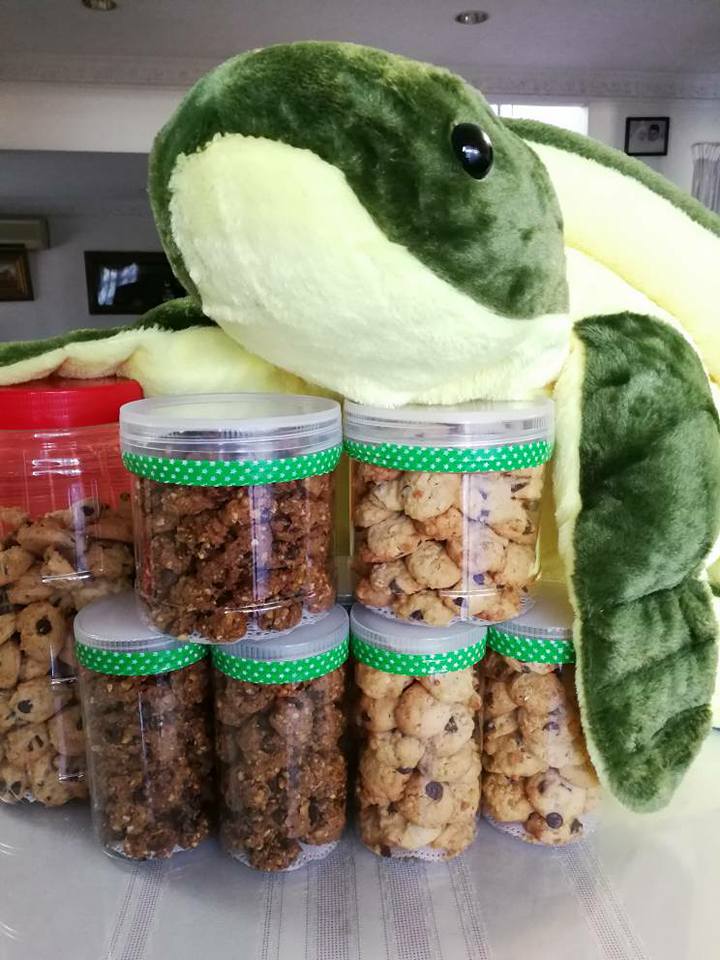
Feeling the turtle power, Iszuddin’s family provided their full support; with his mom identifying bazaars to sell the cookies, his dad helping with the marketing and sales (even once selling them while in the UK on a business trip) and his sister helping to bake on some days. He also had friends who volunteered, communicating in a chat group called Save Sea Animals from Extinction (SAFE), which also became the name of his non-profit.
90% of the profits from his cookie sales went to turtle sanctuaries and conservation groups around the country, and this eventually expanded into a range of merchandise that included t-shirts, calendars and cookbooks. Not just that, Iszuddin also started sharing his passion for turtles and nature in interviews, speaking engagements, and panel discussions. However, one thing he didn’t expect was a shoutout from the Sultan of Perak at a book launch in 2019.
“I woke up, and my mom told me the Sultan of Perak praised me. I didn’t believe her until she showed me the article, and I was like….. wow.”
Despite this though, Iszuddin isn’t resting on his laurels.
“I think I’ve made an impact but I think I could do a lot better. I often get to speak at conservation related events, but it means the awareness is limited to those who care about [the environment]. It doesn’t reach those who are ignorant, it does not reach a wider group.
So I feel more people need to come onboard. It doesn’t have to be with SAFE but any movement, nonprofit, association or company.”
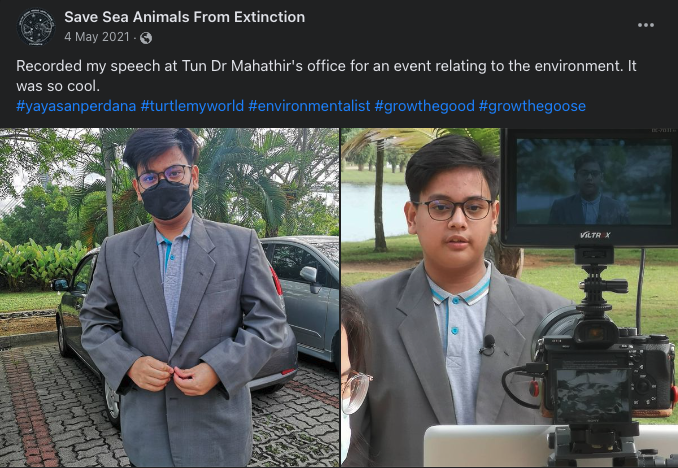
Iszuddin is now 17, and the upcoming SPM is taking up the bulk of his focus. He hopes to do one or two bazaars in 2023 because he really misses doing them, and perhaps with something new…
“In recent years I’ve taken an interest in piano, so I plan to perform in public to raise funds.”
As for words of advice, Iszuddin provides the following 6 points:
- Understand what you want when you start a new business or non-profit
- Once you know why, then list down what you’re good at
- Talk to your family and get their support. Encouragement is very important.
- Listen to their suggestions and advice
- Make your intentions public – tell people what you do and how it’ll impact society
- You have to love doing this. If you don’t, your business will not last long
At 8, Sara Ann started her custom soap business in Kedah
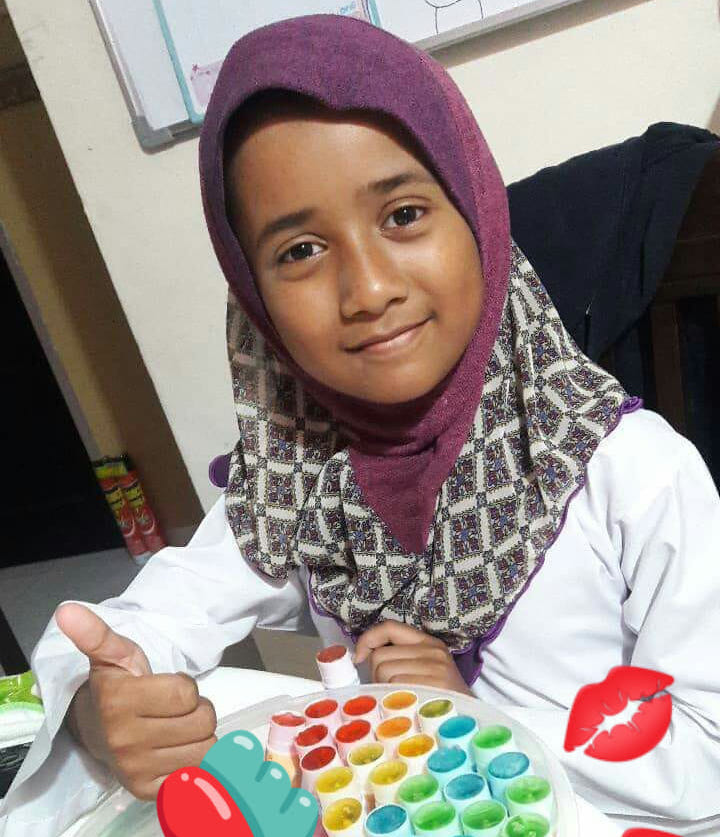
Sarah Najihah (or Sarah Ann as she prefers to be known) always had business in her blood. She got her start selling colouring pages and stickers in kindergarten and, in primary school, keychains, ice cream, and homemade slimes which she made from glue and borax. It was also in primary school that she noticed a problem – many of her schoolmates didn’t wash their hands at the canteen. Thinking of a solution, she figured that kids like to play, so why not put a prize in a bar of soap as a reward?
This was the start of Sara Ann Surprise Soap.
Sara Ann says she learnt to make soap from YouTube videos, studying different processes and techniques until she found one that was suitable.
“I found out about a product called glycerin soap base used in melt and pour, which is the process I use. It’s very easy to learn and use for a child… myself!
I asked my mother if she can find a supplier and she drove around town and luckily there was a supplier in my area.” – Sarah Ann
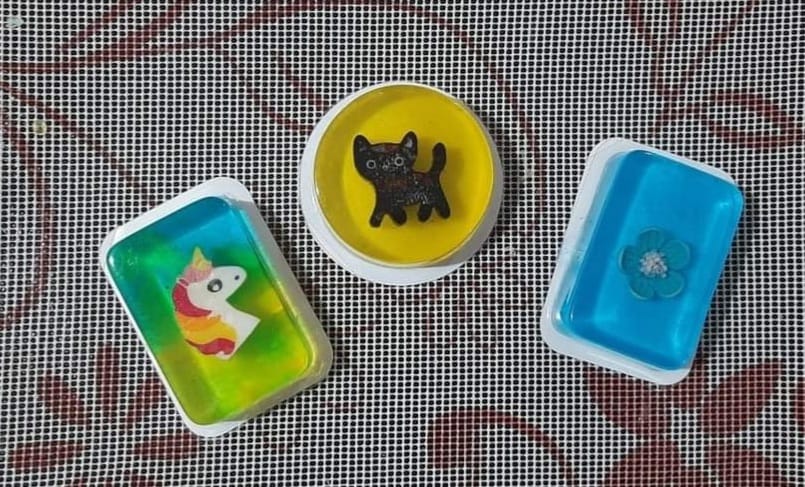
She explained (and schooled us along the way) that she chose the melt and pour process over cold process, which produces higher quality soap but isn’t something kids can easily afford. With cute erasers in the smaller sized soaps and toys or stickers in the large ones, each batch takes about 2 hours and is entirely made by her:
“All my soaps are made by me. My family members tried to help but they just didn’t do it right hahah. They help with wrapping and stuff, but the soap is all me.”
Sara Ann joined the Grow the Goose programme in 2017 and started her business that same year. The business scale was small for the first 2 years, with Sara Ann selling her soaps at school and at local pasars; but wasn’t until she participated in (and won) the Tengku Bainun Young Changemakers award in 2018 that put her in contact with people that helped advise her on growing her business. That same year, she also introduced Sara Ann Stick Soap which repurposes glue stick tubes to ensure you’ll always have clean soap with you.
“We use recycled glue sticks and put soap in it. The glue I turn into slime and sell it hahahaha”
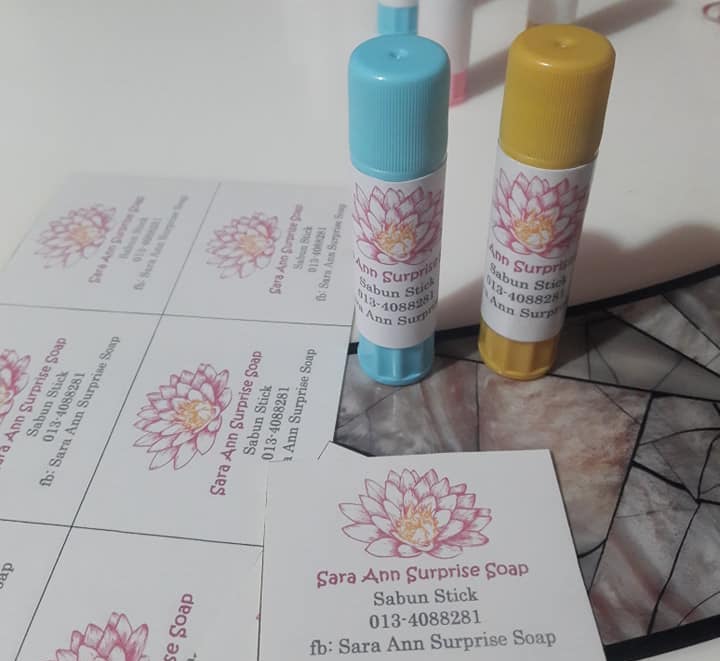
Like a true businesswoman, Sara Ann puts a cut of the profits back into the business and pays her mom (“sometimes”). She pays for many of her own purchases like John Grisham novels, and is building up an education fund where she hopes to one day be a zoologist.
“[The rest of the profits] are mine now because that’s the point of doing business anyway. A child has many wants but no needs at all, but it feels nicer to have things that you buy with your own money.”
Now 15 and at a boarding school, Sara Ann says she doesn’t have much time for the business but she will fulfil orders on weekends when she returns home. Aside from education, most of her focus goes into conducting workshops where she teaches other kids to make their own surprise soaps. For kids out there, her advice is to just start.
“To be honest lah. Just start. Focus on what you have right now and work on it. If you keep worrying about what would happen in the future then you’ll never start and reach the future that you dream of.”
Help your enterprising kids get started with KidSTART
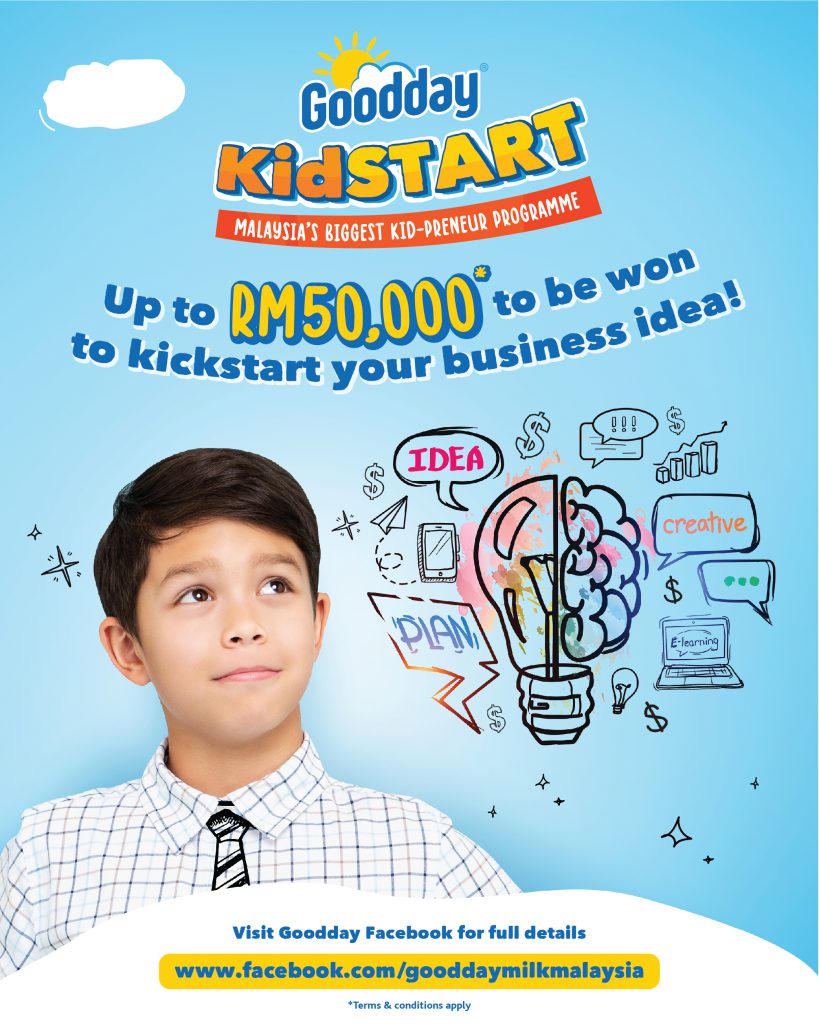
As much as entrepreneurship is about ideas and inspiration to start a business, it’s equally about confidence, spirit, and strong money habits. For Armand, Iszuddin, and Sarah Najihah, those were cultivated by supportive parents and programmes.
If your child is between the age of 7 to 14, the Goodday KidSTART programme is a great place for your kids to…well… start. Goodday has prepared a RM50,000 pool to fund the winners of the programme in their business endeavours.
All you have to do is send in a short video of their pitch to Goodday Milk via their DMs on Facebook or Instagram (@gooddaymilkmy). The video should include:
- An introduction
- Their inspiration to start a business
- The quick elevator pitch of their idea
20 budding kid-preneurs will be shortlisted to attend a 2-day bootcamp in February 2023, where they will be mentored and taught the skills to pitch their ideas to a panel of judges featuring Anja Juliah Abu Bakar from Athena Empowers and Faridah Halina from Coffee for Good.
The last day of submission is January 25 2023, so better hit that record button soon. You can also check out Goodday’s Facebook Page for more information and, who knows? You might be calling your kid “boss” one day.
- 1.5KShares
- Facebook1.4K
- Twitter13
- LinkedIn17
- Email25
- WhatsApp73

